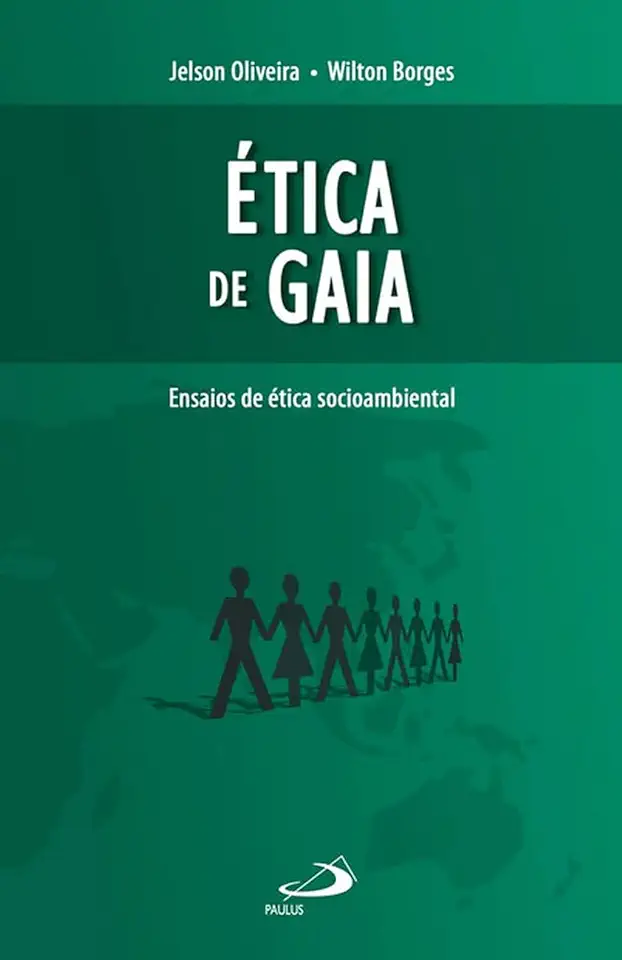
Gaia Ethics - Essays on Socio-Environmental Ethics - Jelson Oliveira / Wilton Borges
Gaia Ethics: Essays on Socio-Environmental Ethics
A Profound Exploration of Our Relationship with the Earth
In the thought-provoking book "Gaia Ethics: Essays on Socio-Environmental Ethics," Jelson Oliveira and Wilton Borges embark on an intellectual journey that delves into the intricate relationship between humanity and the environment. Through a collection of insightful essays, the authors present a compelling case for adopting a holistic and ethical approach to address the pressing socio-environmental challenges of our time.
Understanding the Interconnectedness of Life
At the heart of "Gaia Ethics" lies the concept of Gaia, a holistic perspective that views the Earth as a living, self-regulating system. Oliveira and Borges argue that recognizing this interconnectedness is crucial for fostering a sustainable and harmonious coexistence with the natural world. They explore the profound implications of this perspective, challenging conventional notions of human dominance and advocating for a more respectful and responsible stewardship of the planet.
Addressing Socio-Environmental Crises
The book confronts the urgent socio-environmental crises that humanity faces, including climate change, biodiversity loss, and resource depletion. Oliveira and Borges provide insightful analyses of the root causes of these crises, tracing them back to anthropocentric ideologies and unsustainable practices. They emphasize the need for transformative change, urging individuals, communities, and governments to adopt ethical frameworks that prioritize the well-being of both human and non-human life.
Ethical Frameworks for Sustainable Development
"Gaia Ethics" offers a comprehensive exploration of ethical frameworks that can guide sustainable development. The authors draw upon diverse philosophical traditions, including environmental ethics, ecofeminism, and indigenous wisdom, to propose a holistic approach that integrates ecological, social, and economic considerations. They argue that ethical decision-making must extend beyond short-term economic interests and encompass the long-term well-being of future generations and the preservation of biodiversity.
Empowering Individual and Collective Action
The book emphasizes the crucial role of individual and collective action in addressing socio-environmental challenges. Oliveira and Borges provide practical insights into how individuals can adopt sustainable lifestyles, engage in environmental activism, and support policies that promote ecological conservation. They also highlight the importance of collective action, encouraging readers to join forces with like-minded individuals and organizations to create positive change on a larger scale.
A Call to Action for a Sustainable Future
"Gaia Ethics" serves as a clarion call for a profound transformation in our relationship with the Earth. Through their thought-provoking essays, Oliveira and Borges challenge readers to critically examine their own values and behaviors, and to embrace a more ethical and sustainable way of living. The book is a must-read for anyone concerned about the future of our planet and committed to creating a more just and harmonious world for all.
Conclusion
"Gaia Ethics: Essays on Socio-Environmental Ethics" is a powerful and inspiring work that offers a comprehensive exploration of the ethical dimensions of our relationship with the environment. Jelson Oliveira and Wilton Borges provide a wealth of insights and practical guidance, empowering readers to become agents of positive change. This book is an essential resource for anyone seeking to understand and address the socio-environmental challenges of our time and to build a more sustainable and ethical future for humanity and the planet.
Enjoyed the summary? Discover all the details and take your reading to the next level — [click here to view the book on Amazon!]